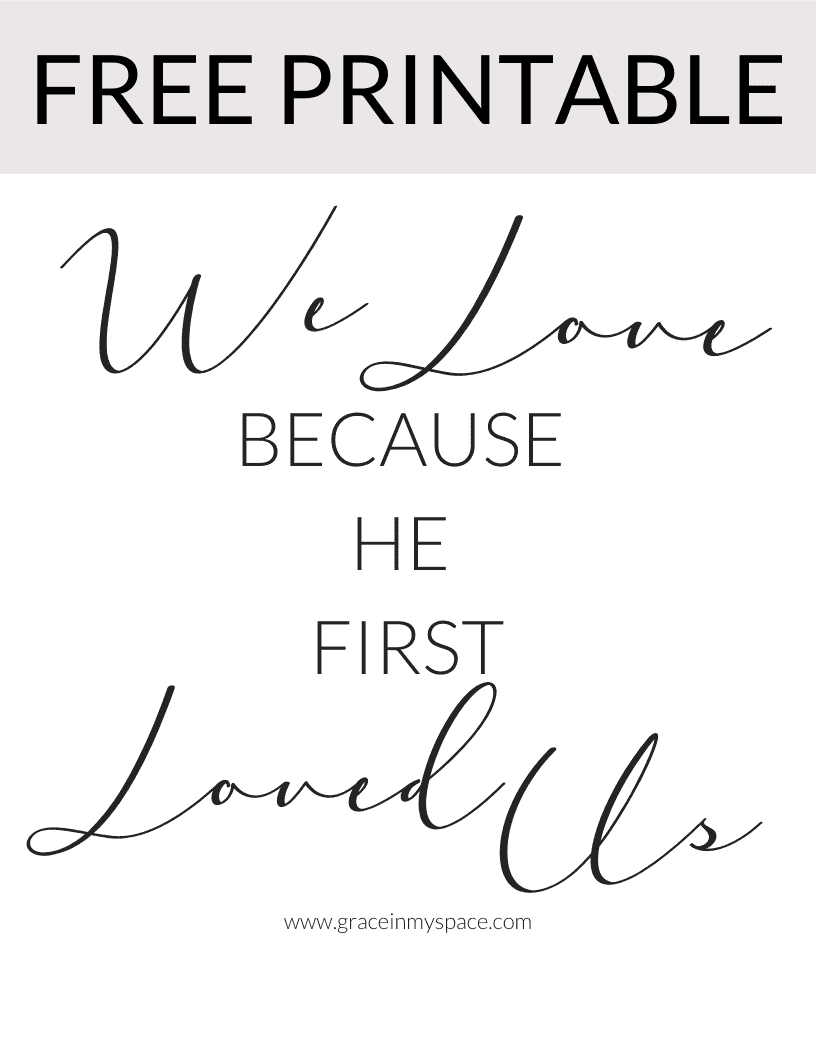Biblical Conflict Resolution Examples from Jesus
There is no greater example of someone who has been hurt, betrayed, and dealt with severe conflict, than Jesus. So I wanted to take a look at a few instances where we can learn from Jesus’ actions towards those who have wronged Him. These are Biblical conflict resolution examples we can all relate to and learn from.
If you’re just joining me on this series, make sure to read the first two posts to begin!
- Biblical Conflict Resolution | It’s Not What You Think
- Examples of Biblical Conflict Resolution Activities
This post may contain affiliate links where I earn a small commission on your purchases.
Biblical Conflict Resolution Examples from Jesus’ Life.
In the book of Matthew, we walk through Jesus’ relationships with Him. He dealt with many people: disciples, family, crowds of strangers, people of prominence and people of poverty, and also enemies.
He teaches us over and over again how to relate to people in a Godly way, but today I want to look specifically at how he related to relational conflict. We will look specifically at Judas, Peter, the Pharisees and His moments on the cross. These are great examples of relational conflicts in the Bible and how they were resolved.
Judas + Jesus
If you read the Bible like a story book, then Judas is easily one of the biggest plot twists. A follower of Jesus turned against him for mere money, only to end up taking his own life out of regret. He has been portrayed as a villain, an enemy of Jesus.
And his actions did prove to be villainous; however, Jesus’ approach to his relationship astounds me when I read about it.
When it was evening, he reclined at the table with the twelve. And as they were eating, he said, ‘Truly I say to you, one of you will betray me.’ And they were very sorrowful and began to say to him one after another, ‘Is it I, Lord?’ And he answered, ‘He who has dipped his hand in the dish with me will betray me. The Son of Man goes as it is written of him, but woe to that man by whom the Son of Man is betrayed! It would have been better for that man if he had not been born.’ Judas, who would betray him, answered, ‘Is it I, Rabbi?’ He said to him, ‘You have said so.’
Matthew 26:20-25
This exchange has always bewildered me. As the passage continues, Jesus held the Lord’s supper with Judas at the table. He didn’t dismiss him, but gave him a chance to repent!
How Did Jesus Handle This Conflict?
Jesus’ actions towards Judas teach us two things:
- Jesus didn’t hide from the conflict. He addressed him directly with facts, and not emotions.
- He gives Judas the chance to rethink his actions and come back to relationship with Jesus.
But as I consider Jesus’ actions more, I see something that few in our world would attempt. If you or I were sitting at the same table as someone about to have us murdered, would we break bread with them? Would we give them a chance for repentance and reconciliation?
Surely, this is an amazing example to us as we deal with admittedly, much less severe conflicts, on a daily basis!
Additionally, I see that Jesus didn’t simply sit by without addressing the issue. He clearly indicates that he knows Judas’s plot. He warns him that if he proceeds with his plan, it would be better for him not to be born. This warning gives Judas everything he needs to turn his heart back to the Lord in repentance.
So often we shy away from conflict out of fear of the outcome. But truth spoken in love is Jesus’s example over and over again. It doesn’t always change the heart of the person He is speaking to, as was the case in this instance.
But he doesn’t shrink back from speaking out of fear that the outcome won’t be what He desires. That responsibility is for the other person, and is out of our control. Our responsibility is to follow the Lord’s leading as we pray into the situation for what He would have us do.
Peter + Jesus
On the other hand, Peter’s story tells a different tale. While Judas has been seen as an enemy of Jesus, Peter was a beloved disciple and friend. One who Jesus says is the rock on which His Church would be built.
That makes Peter’s betrayal even more painful. Conflict with an enemy is certainly difficult. However, conflict with a friend brings hurt and pain that is hard to rival.
In Matthew 26, Jesus tells Peter that he will deny Him three times. He takes the time to warn him of this coming pitfall. As we know, Peter denies this and yet does just as Jesus said, bringing great sorrow to himself upon realizing his mistake.
And yet, even after His resurrection He addresses Peter amongst the 11 and says, “And behold, I am with you always, to the end of the age.” Matthew 28:20
Jesus’ conflict with Peter gives us two conflict resolution examples and action steps:
- When we know that conflict is on the horizon, address the situation immediately.
- If hurt or betrayal still happens, forgive and have mercy.
This example of conflict in the Bible is one that we can likely relate to most easily. A friend or family member who hurts us is a common occurrence. But what if we took a step back and asked ourselves if the offense was actually intended, or just perceived?
Was It Offensive? Or Are You Offendable?
In Peter’s case, he clearly denied Jesus. However, what about the situation in your life? Did your “Peter” actually wrong you? Or was it a misunderstanding or insecurity on your part that lead to the offense?
A few weeks ago I saw a sign on the road that was a simple catchy slogan, but I immediately felt on edge from it. And God whispered, “Is that offensive because it’s offensive? Or because you are offendable?”
What’s the difference, you ask? We live in a world where a simple differing opinion or experience has become an attack on our own self-worth. It drives us to always be right and never take a risk in standing for something that we might be attacked for, and thus, make us feel less-than.
On the flip side, it also makes us an offendable culture. We’ve turned generic statements into personal attacks. We’ve taken others’ harmless words and twisted them beyond recognition. All in the interest of preserving our own self-worth.
Now, are there offensive things in the world? Yes. Are there offensive people? Yes.
But when everything is offensive, then perhaps the question should become, “Is that offensive, or am I offendable?”
Because satan desperately wants offended people. Offense is one of the greatest dividers of humanity. Brother to brother. Mother to daughter. Friend to friend. If offense can sneak in, relationship is nearly impossible. And satan hates relationship.
Where Your FOcus Lies, Your Heart Will Follow
It’s not easy to overcome offense in our own strength. But God can take it away with a simple request. As Christians, we have to give up our perceived right to be offended. Do you want to live an un-offendable life? Ask Him to take it away. And continue to ask Him day after day.
Forgiveness is the antithesis of offense. And it comes when we take our eyes off of the perceived wrong and place them on the Father. Where your focus lies, your heart will follow.
Pharisees & Enemies at the Cross + Jesus
Perhaps the greatest betrayal Jesus had to deal with was with those who persecuted Him on the cross. This event gives us more than just conflict resolution examples. It gives us a picture of Godly wisdom and holiness.
In Matthew 27:11-14, Jesus was wrongly accused and did not refute it. In Matthew 27:27-31 he was tortured and mocked, and yet He didn’t resist.
And again, on the cross, He was mocked openly by crowds and soldiers, yet He didn’t engage them. What He said gives us the best Biblical example of conflict resolution we could ever hear.
And Jesus said, ‘Forgive them Father, for they know not what they do.’
Luke 23:34

Biblical Conflict Resolution in The Modern Age
Looking at these specific conflict resolution examples in Jesus’ life often causes people to say, “He was Jesus. I’m mere man.”
Yes, He was Jesus, but He was also fully man. And, He tells us that He has sent a helper greater than He. We have the Holy Spirit on our side during conflict, betrayal, and unjust situations.
The Holy Spirit’s power is greater than any hurt, betrayal, offense or division the satan can throw at you. He is the VICTOR, living in you, as a Christ follower. He is the CHAMPION, the battle has already been won. We are not powerless.
We have the greatest power in the universe breathing life into us to be able to overcome conflict, hurt, and failing relationships.
Seek Him First
The key is, that we have to SEEK Him.
None of the reactions of Jesus come naturally to us. Where He addressed conflict openly and without emotion clouding His thoughts, we tend to hide from it and stew on it.
Where He gives people second changes, we tend to put walls up.
Where He gives forgiveness, we tend to allow bitterness to fester.
Jesus has given us the perfect example of how to work through conflict in a Biblical way. All we need to do is practice it. We need to stop overcomplicating it.
Yes, hurt still exists. No, every relationship won’t be restored to what it once was. But out of each situation Jesus encountered, He still showed forgiveness and mercy. We are called to forgiveness and sanctification as mature Christians.
My prayer is that these examples will give us all pause to stop and consider how our own actions or reactions in relational conflict measure up to Jesus’ standard. With the Holy Spirit we can also have that peace that surpasses all understanding in these difficult situations.
We love because He first loved us.
1 John 4:19
Stay Connected
I hope that this series has been helpful to you as you work through your own personal situations. I encourage you to dive deeper into the Word on this topic as my series barely scratched the surface of the wisdom the Bible has for us.
For our appeal does not spring from error or impurity or any attempt to deceive, but just as we have been approved by God to be entrusted with the gospel, so we speak, not to please man, but to please God who tests our hearts. For we never came with words of flattery, as you know, nor with a pretext for greed—God is witness. Nor did we seek glory from people, whether from you or from others, though we could have made demands as apostles of Christ. But we were gentle among you, like a nursing mother taking care of her own children. So, being affectionately desirous of you, we were ready to share with you not only the gospel of God but also our own selves, because you had become very dear to us.
1 Thes. 2:3-8

Thank you so much for visiting the blog today. I’d love for you to join the community of Haven Makers as a blog subscriber and to follow along with me daily on Instagram.
~Sarah




Searching for Biblical examples of conflict resolution, I found this series as it’s a topic i’m pondering on a lot via audio books, but also in the aftermath of real life conflicts. Thank you, Sarah, for these concise, yet highly relevant words, based on your Spirit-led reflections of His word that are simultaneously challenging & hopeful. They help create a mental structure as I think more about how this works in practice & also process recent experiences in this area, also heightening my awareness of what a good, good Heavenly Father He is, so gracious in how gently He teaches & guides us even through tough experiences: after all He knows what it’s like for us! Thank you, Sarah.
Sarah, Thank you so much. Love this This certainly helps in my life to realize the love He has for us!
I’m so glad. He is such a loving God. 🙂
Through this series, forgiveness seems to be the central point. As I thought how Jesus made it look so easy, I realized that it wasn’t that it was easy for Him. His choice was to respond as His Father would have Him do. Jesus didn’t spend time ruminating and weighing the pros and cons or if He thought it was right or if it was fair. He just obeyed His Father. As I think this through as I write, can it be that simple? Just obey regardless of the conflict. Can I stand up for myself (ie not be a doormat; not be taken advantage of) at the same time as forgiving and extending mercy?
I’ve been pondering your question all week. I think there are a couple of things to consider. First, Jesus knew his destiny on the cross. Yes, He asked the father if there was any other way, but as you said, He submitted in obedience because that would offer us saving grace. This is a much different scenario than it would be for us. We aren’t called to be doormats. But, we are called to forgive. So while we are given the power to stand up for ourselves with a Biblical wisdom and heart, the action comes in typically in the aftermath when we have to choose forgiveness rather than revenge or some other unbiblical reaction. But there is wisdom in knowing when to forgive and walk away rather than subjecting ourselves to future hurt too. It is certainly something we all need to consider.